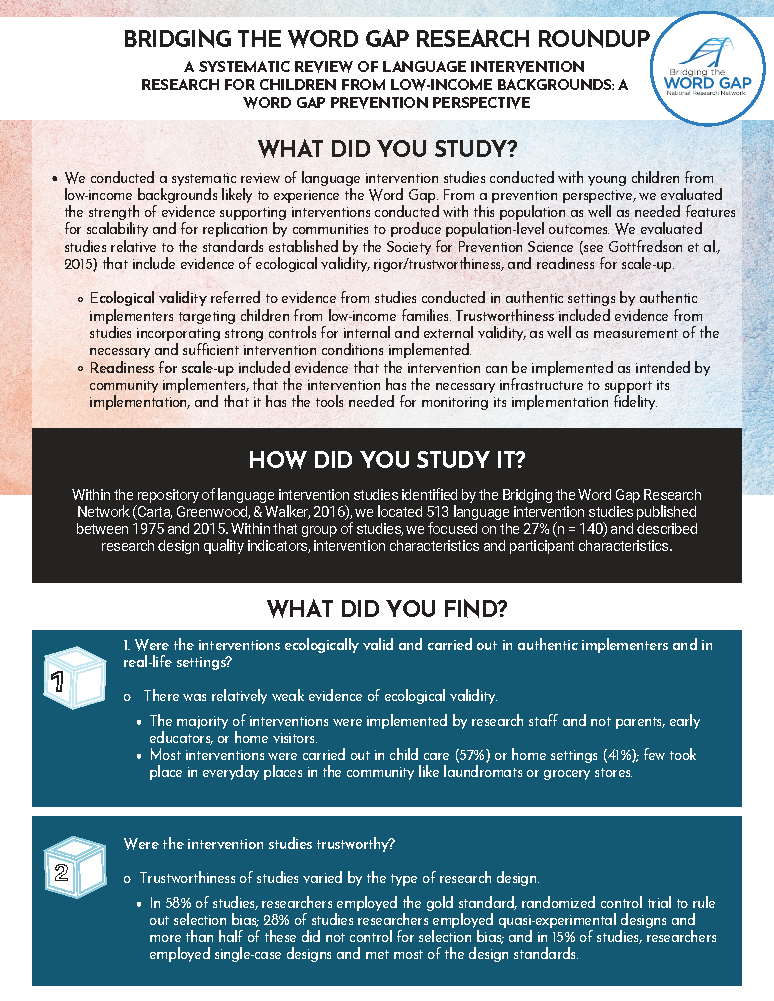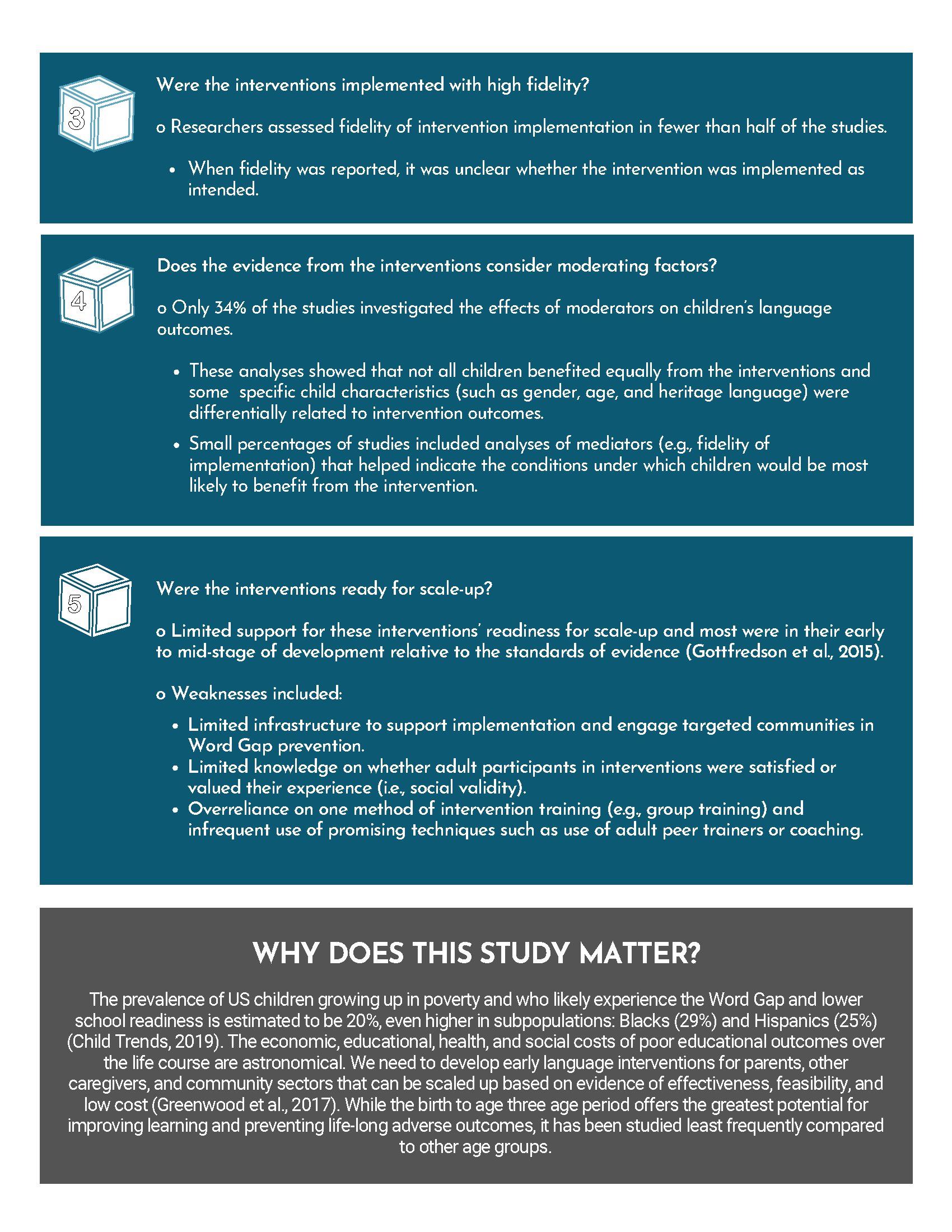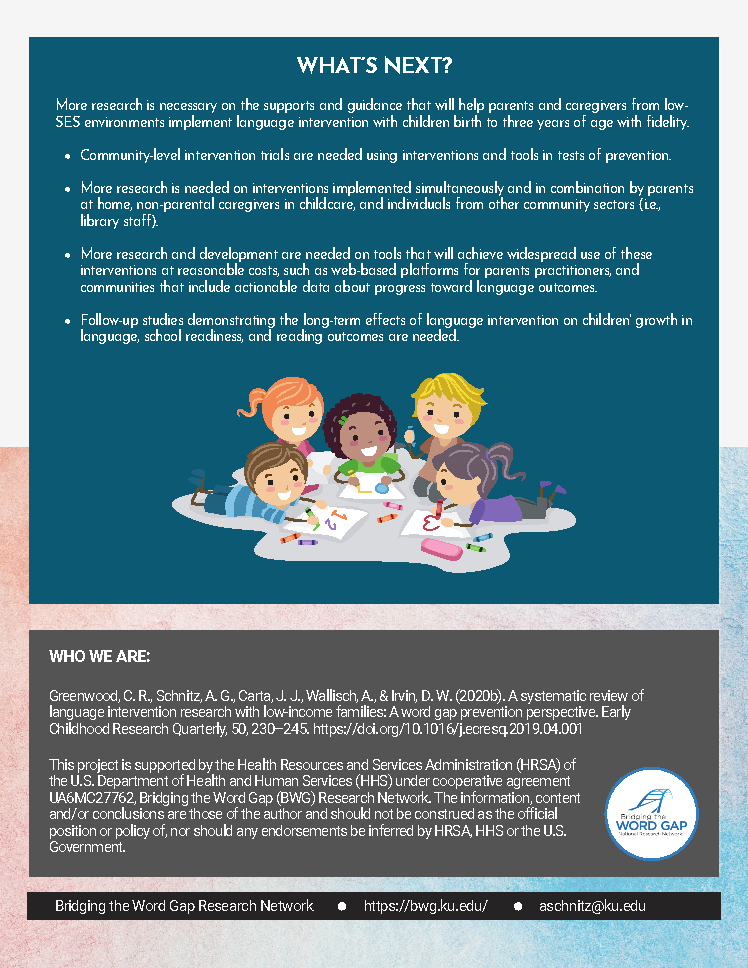Bridging the Word Gap Research Network
Research Roundup Briefs
A Systematic Review of Language Intervention Research for Children from Low-Income Backgrounds: A Word Gap Prevention Perspective
We conducted a systematic review of language intervention studies conducted with young children from low-income backgrounds likely to experience the Word Gap. From a prevention perspective, we evaluated the strength of evidence supporting interventions conducted with this population as well as needed features for scalability and for replication by communities to produce population-level outcomes. We evaluated studies relative to the standards established by the Society for Prevention Science (see Gottfredson et al., 2015) that include evidence of ecological validity, rigor/trustworthiness, and readiness for scale-up.
Ecological validity referred to evidence from studies conducted in authentic settings by authentic implementers targeting children from low-income families. Trustworthiness included evidence from studies incorporating strong controls for internal and external validity, as well as measurement of the necessary and sufficient intervention conditions implemented.
Readiness for scale-up included evidence that the intervention can be implemented as intended by community implementers, that the intervention has the necessary infrastructure to support its implementation, and that it has the tools needed for monitoring its implementation fidelity.



